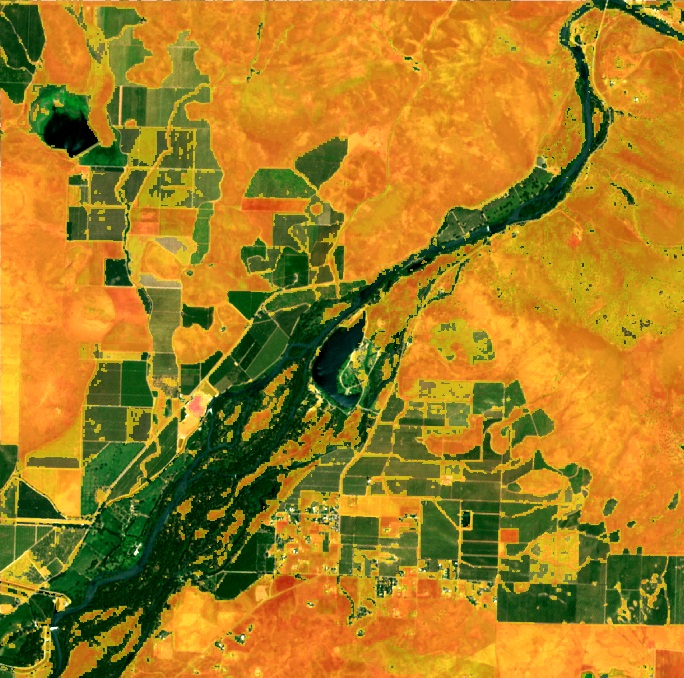Advantages of Agribusiness Partnerships: 5 Key Benefits for Boosting Productivity, Collaboration, and Innovation
“Agribusiness partnerships using advanced data sharing can increase crop yield by up to 25% compared to traditional methods.”
Table of Contents
- Introduction: The Evolving Landscape of Agribusiness Partnerships in 2025
- What is the Main Advantage of Forming a Partnership in Agribusiness?
- Advantages of Agribusiness: The 5 Key Benefits of Partnerships
- Benefits Comparison Matrix: The Measurable Impact of Agribusiness Partnerships
- Deep Dive: How Each Partnership Benefit Transforms Agribusiness
- Agribusiness Technology Partnerships: Pioneering Efficiency and Sustainability
- Agriculture of Data Partnership: Sharing Intelligence for Precision and Profit
- African Fertilizer and Agribusiness Partnership (AFAP): A Focused Model for Impact
- The Future of Agribusiness Partnerships in 2025 and Beyond
- Our Contribution: How Farmonaut Empowers Agribusiness Growth via Technology
- Frequently Asked Questions (FAQ)
- Conclusion: Collaborating for Sustainable Advantage in Agribusiness
Introduction: The Evolving Landscape of Agribusiness Partnerships in 2025
The landscape of agribusiness in 2025 is rapidly evolving. Driven by technology, data sharing, and innovation, the sector is transforming to meet the challenges of a growing world population, increasing demand for sustainable practices, and the increasing complexity of global food systems.
Today, forming partnerships in agribusiness is considered one of the most strategic moves for stakeholders aiming to enhance operational efficiency, unleash innovation capacity, and expand market reach. As farms, input suppliers, agritech firms, and financial institutions tackle a host of new challenges—from climate change to supply chain disruptions—collaboration is proving to be critical to success.
“Over 60% of innovative agribusinesses collaborate to adopt new technologies, accelerating sustainable growth industry-wide.”
What is the Main Advantage of Forming a Partnership in Agribusiness?
What is the main advantage of forming a partnership in agribusiness? The primary advantage is the pooling of resources, expertise, and technology to generate synergistic benefits that individual entities could not achieve alone. By forming partnerships, farmers, suppliers, technology providers, financial institutions, and governments can collaboratively address complex issues including access to quality inputs, efficient supply chains, and market expansion.
This collaboration is the engine that drives innovation and scalability. In the complex, global food system of 2025, no single entity has all the answers. Instead, real progress emerges from forming partnerships—continually evolving collaborations that deliver both productivity improvements and resilience in the face of new challenges, such as climate change and market disruptions.
- Pooled resources result in better technology adoption.
- Shared data reveals deeper insights and fosters innovation.
- Combined expertise addresses systemic market and supply chain issues.
- Risk is distributed, increasing resilience for all stakeholders.
The result: partnerships enable farmers and businesses to secure affordable credit, leverage new agritech solutions, enter emerging markets, and overcome structural barriers—all while building robust, sustainable agricultural systems.
Advantages of Agribusiness: The 5 Key Benefits of Partnerships
Let’s explore the advantages of agribusiness collaboration and highlight the five most critical benefits of forming partnerships in 2025:
- Access to Capital and Resources: Unlock better financing opportunities, affordable credit, and investment for growth, especially for smallholder farmers and agribusinesses facing barriers to financial inclusion.
- Technology Transfer and Innovation: Accelerate the adoption of precision farming, AI-based advisory, drone surveillance, and other cutting-edge solutions to boost productivity and sustainability.
- Market Expansion and Supply Chain Efficiency: Enable joint marketing, aggregated produce, and shared logistics for cheaper, faster market reach. Reduce post-harvest losses and improve supply chain performance.
- Risk Sharing and Resilience: Distribute risks related to climate change, pest outbreaks, and market disruptions across stakeholders, enhancing sector-wide resilience.
- Data Sharing and Strategic Intelligence: Use collaborative data sharing (like agriculture of data partnerships) to generate real-time insights for better resource management, yield forecasting, and sustainability decision-making.
Benefits Comparison Matrix: The Measurable Impact of Agribusiness Partnerships
| Benefit | Description | Estimated Productivity Improvement (%) | Technology Adoption Level | Data Sharing Impact Score (1-10) | Example Innovation |
|---|---|---|---|---|---|
| Access to Capital & Resources | Enables affordable financing, input access, and resource pooling for growth | 15-30% | Medium | 7 | Satellite-based credit verification |
| Technology Transfer & Innovation | Accelerates adoption of advanced agritech and digital solutions | 20-35% | High | 9 | AI-driven farm advisory |
| Market Expansion & Supply Chain Efficiency | Improves aggregation, logistics, and access to premium markets | 12-25% | Medium | 6 | Blockchain produce traceability |
| Risk Sharing & Resilience | Distributes risks & enhances sector resilience to climate and market shocks | 10-18% | Low-Medium | 5 | Insurance powered by satellite assessment |
| Data Sharing & Strategic Intelligence | Enables predictive analytics for decision-making & sustainability | 18-28% | High | 10 | Big data-driven precision farming |
Deep Dive: How Each Partnership Benefit Transforms Agribusiness
1. Access to Capital and Resources
Partnerships often facilitate better access to capital and resources. By aligning with financial institutions or development agencies, agribusinesses and farmers amplify their chances of securing affordable credit and investment. This is particularly crucial for smallholder producers who traditionally face barriers to financial inclusion, and for input suppliers looking to expand reach.
- Pooling financial resources allows for bulk purchase of quality inputs—seeds, fertilizers, and technologies.
- Development agencies provide technical support and funding for training.
- Cutting-edge platforms, like satellite-driven verification for crop loans and insurance, reduce paperwork and fraud, making credit accessible for even the smallest farms.
Result: Unlocking scalable investment in technology, equipment, and farm operations.
2. Technology Transfer and Innovation: Agribusiness Technology Partnerships
Agribusiness technology partnerships are at the heart of the sector’s transformation in 2025. Collaboration with technology firms and research institutions accelerates the adoption of precision agriculture, AI-powered advisory, blockchain traceability, and smart irrigation systems.
- Technology partnerships enable farmers and stakeholders to quickly access the very latest innovations—without the need for individual, costly R&D.
- Farms can improve yields with AI-driven weather forecasting and satellite-guided crop monitoring.
- Blockchain-powered traceability ensures supply chain transparency—critical for export markets and consumer trust. Platforms such as Farmonaut’s Product Traceability make this option accessible.
- Smart resource management and fleet tracking solutions, exemplified by Farmonaut’s Fleet Management system, help optimize equipment use and logistics, reducing costs at scale.
Result: Rapid scale-up in farm productivity, efficiency, and sustainability with the latest agritech solutions.
3. Market Expansion and Supply Chain Efficiency
In 2025, agribusiness partnerships enable even small-scale farmers to bring products to large, lucrative markets that would otherwise be inaccessible.
- Joint marketing, aggregation of produce, and shared branding increase market reach and negotiating power.
- Centralized logistics reduce costs, speed up delivery, and minimize post-harvest losses.
- Blockchain-based solutions (such as those offered by Farmonaut’s traceability platform) support batch verification, fraud prevention, and ensure food authenticity and safety.
- AI-enabled supply chain management tools connect production, warehousing, and distribution for optimal efficiency.
Result: Faster, more reliable supply chains and expanded export potential for previously isolated producers.
Want to integrate satellite-based logistics optimization or precision farming data into your business? Explore the Farmonaut API or API developer documentation for seamless integration.
4. Risk Sharing and Resilience
The agricultural sector is highly exposed to climate risks, pest invasions, and unpredictable markets. Partnerships enable risk distribution, so no single entity shoulders the entire burden.
- Insurance products, powered by satellite verification (see: Crop Loan & Insurance solution), use real data for fairer and faster risk assessment.
- Collaborative input procurement and bulk storage buffer against local disruptions or price hikes.
- Joint R&D in pest-resistant varieties and climate-smart practices spreads innovation costs and benefits widely.
Result: Improved resilience—partners adapt to shocks and recover much faster than those operating alone.
5. Data Sharing and Strategic Intelligence: Agriculture of Data Partnership
Agriculture of data partnership is the backbone of precision agriculture and “smart farming” in the information era. By collaborating to collect, share, and analyze data (weather, soil health, satellite imagery, historical yields), stakeholders generate incredibly powerful, actionable insights.
- AI and big data platforms create predictive tools for planting, fertilization, irrigation, and pest management.
- Open data protocols and secure sharing arrangements allow small and large farms alike to benefit.
- Governments, input suppliers, and agri-firms join forces to monitor soil and crop health, ensuring rapid response to threat signals.
Result: Smart, data-driven systems that deliver consistent improvement in yield, input use efficiency, and sustainability outcomes.
Agribusiness Technology Partnerships: Pioneering Efficiency and Sustainability
The rise of agribusiness technology partnerships is fundamentally reshaping agricultural productivity and resource management in 2025. These collaborations fuel the deployment of smart irrigation systems, AI-powered advisory apps, and satellite or drone surveillance tools. The outcome: more food with fewer resources, less waste, and a lower environmental footprint.
Examples of Cutting-Edge Agritech Solutions Gained via Partnerships:
- Drone Surveillance: Instant pest and disease detection at scale.
- Satellite-Based Monitoring: Real-time NDVI and soil health insights for data-driven farm management.
- AI-Powered Farm Advisory: Personalized crop recommendations (e.g., Jeevn AI Advisory system provided by us at Farmonaut).
- Blockchain Traceability: Authenticate supply chain origins and compliance.
- Environmental Impact Tracking: Monitor carbon footprint to ensure regulatory compliance and promote sustainability.
By partnering for technology transfer, agricultural stakeholders leapfrog traditional methods, driving exponential improvements in yield, sustainability, and market confidence. These solutions are vital for feeding the growing global population amid climate uncertainty and resource pressures.
Agriculture of Data Partnership: Sharing Intelligence for Precision and Profit
In the era of big data and AI, agriculture of data partnerships are fundamental for strategic advantage.
- Massive, high-quality datasets are aggregated from governments, private companies, and farmers.
- Data is anonymized, secured, and shared via advanced platforms and APIs—like those we provide at Farmonaut.
- Predictive analytics alert users to optimal planting times, fertilizer applications, pest outbreaks, and market trends.
- These partnerships facilitate real-time responses to climate variability, improving resource efficiency and farm-level profits.
The results are clear: Data sharing multiplies insight and compels action, turning digital intelligence into measurable gains on every field and across every supply chain.
African Fertilizer and Agribusiness Partnership (AFAP): A Focused Model for Impact
A prime example of the transformative power of partnerships is the African Fertilizer and Agribusiness Partnership (AFAP). In much of Africa, low access to quality fertilizer and inefficient supply chains have traditionally constrained crop productivity. AFAP exemplifies how focused collaboration among governments, private fertilizer firms, distributors, and farmers can dramatically boost fertilizer availability, encourage investment, and strengthen food security.
- AFAP’s model encourages private investment by reducing risks for fertilizer manufacturers and distributors, improving supply across regions.
- Policy advocacy ensures favorable import/export rules and tax structures.
- Farmer education and logistics support allow broader, more effective fertilizer use.
The african fertilizer and agribusiness partnership is a template proving that pooling efforts can overcome historic barriers, improve soil health, and foster sustainable agricultural development.
The Future of Agribusiness Partnerships in 2025 and Beyond
In 2025 and beyond, the future of agribusiness is built on collaboration and continuous adaptation. The next wave of partnerships will increasingly involve:
- AI-powered platforms that automate monitoring, planning, and decision support.
- End-to-end blockchain solutions for concept-to-consumer traceability and resource tracking.
- Climate-smart farming support, backed by regional consortiums sharing satellite imagery and intelligence.
- Public–private partnerships focused on overcoming last-mile supply challenges for smallholder farmers.
- Open-data alliances scaling precision farming to all geographies.
With a rapidly evolving landscape, entities that prioritize forming synergistic partnerships—and leverage innovative digital tools—will be better positioned to respond to climate change, shifting markets, and increased consumer expectations on sustainability and transparency.
Our Contribution: How Farmonaut Empowers Agribusiness Growth via Technology
At Farmonaut, our mission is to make satellite-driven agritech solutions affordable, accessible, and impactful for agribusinesses of all sizes. As the sector embraces the shift toward more collaborative, data-rich, and technology-enabled systems, our platform delivers five key values to agribusiness partnerships:
- Real-time Monitoring: We provide satellite-based crop, soil, and infrastructure health monitoring, empowering both small farms and major enterprises with actionable insights.
- AI-Powered Advisory: Our Jeevn AI delivers custom strategies for precision farming, tailored by field conditions and local climate risks.
- Blockchain-Based Traceability: We help verify supply chain authenticity and ensure transparency from seed to sale, rebuilding consumer trust globally.
- Resource Management: Optimized fleet management and carbon footprint monitoring tools (fleet management solution and carbon footprinting platform) drive cost savings and sustainability.
- Flexible Integration: Our API and multiple app platforms (web, Android, iOS, see above) let each partner access and deploy high-impact solutions at scale.
We are committed to pushing the boundaries of technology and data-driven innovation for every stakeholder in the agribusiness system.
Frequently Asked Questions (FAQ)
- Q: What is the main advantage of forming a partnership in agribusiness?
A: The primary advantage lies in pooling resources, expertise, and technology to generate synergistic benefits (like better financing, rapid technology adoption, and risk sharing) that individual entities can’t achieve alone, thus boosting productivity and resilience. - Q: What are key examples of agribusiness technology partnerships?
A: Collaborations with technology firms for satellite crop monitoring, AI advisory, drone surveillance, and blockchain traceability are prime examples. These accelerate innovation and improve both yields and sustainability. - Q: How do agriculture of data partnerships change farm management?
A: They facilitate large-scale data sharing (weather, soil, yields), enabling predictive analytics, more precise input application, and risk mitigation, thus enhancing productivity and profitability. - Q: What role does AFAP play in African agribusiness?
A: The African Fertilizer and Agribusiness Partnership brings together public and private actors to improve fertilizer supply chains, support policy modernization, and promote sustainable soil health, resulting in increased productivity and food security across the continent. - Q: How does Farmonaut support agribusiness growth?
A: We provide affordable, accessible satellite-based technology, AI advisory, blockchain traceability, and analytics for partnerships among farmers, businesses, governments, and financial institutions—directly supporting operational improvement, sustainability, and resilience.
Conclusion: Collaborating for Sustainable Advantage in Agribusiness
As we move further into 2025, it is clear that forming partnerships in agribusiness remains the most effective strategy for maximizing operational efficiency, innovation, and market value.
By pooling resources, data, and expertise, stakeholders create robust, scalable systems that deliver greater productivity, resilience, and sustainability—essential in an era faced with climate change and complex supply chain disruptions.
Whether it’s gaining affordable access to capital, accelerating technology adoption, unlocking new market opportunities, sharing risks, or leveraging the full power of data partnerships, the advantages of agribusiness partnerships are both strategic and practical.
To all agribusiness leaders and innovators—startups, established companies, cooperatives, suppliers, and institutions—partnerships are the key to future-proof growth. Empowered by pioneering solutions, such as those we offer at Farmonaut, you can confidently pursue higher yields, lower input costs, greater transparency, and enduring sustainability for your businesses and the communities you serve.

Crop Loan & Insurance Solutions
Carbon Footprinting Tools
Product Traceability Platform
Fleet Management
API Integration
API Developer Docs
Content provided is educational in nature and strictly based on context. Farmonaut is a satellite technology company delivering monitoring, advisory, traceability, and resource management—not a marketplace, manufacturer, or regulatory entity.









